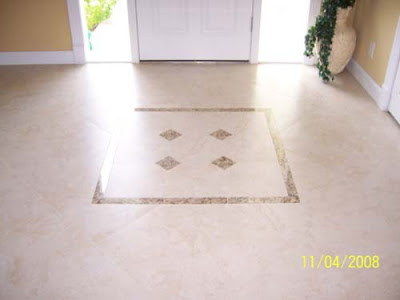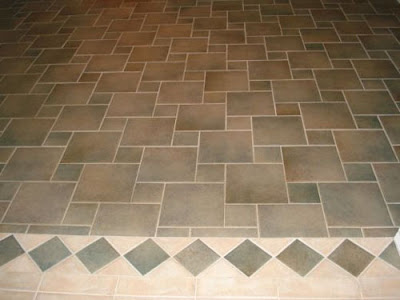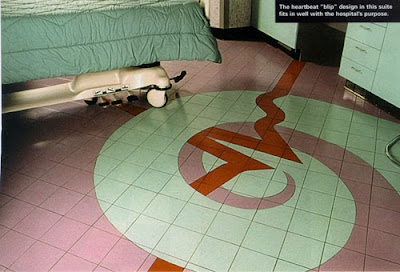Interior Flooring Designs











Tiles are a type of hard flooring and are available in a wide range of natural and man-made materials. Ceramic tiles, mosaics, slate and marble are just some of the choices available and each come with their own pros and cons. The main advantage of tiles is that they are extremely hard wearing and if well maintained will last a very long time. As they are waterproof they are well suited to areas such as bathrooms and utility rooms and being easy to clean are also ideal for kitchens. However, tiles can be cold underfoot and can be slippery when wet so are not suited where older people or children are present. If they have an intricate pattern they can be difficult to fit as well as being expensive and semi-permanent. They are also noisy and require other softer surfaces to reduce the amount of echo in a room.
Wooden floors are also classed as hard flooring but being softer than tiles they are also warmer underfoot. With the huge range of natural tones available they can help create a warm and homely feeling and although they can be noisy, if ‘sprung’ it can help to reduce noise and add bounce to the floor. The downside of wooden floors is that they are usually manufactured from softwoods and therefore can dent easily especially by the heels of shoes. Wooden floors are therefore best suited to rooms that do not receive heavy wear such as bedrooms.
Carpets are classed as soft flooring and by their very nature create a sense of warmth and comfort. They can feel luxurious underfoot and are good for hiding stains and dirt. Heavily patterned carpets however, can make a room seem smaller and will date easily. Plain carpets on the other can make a room seem larger by creating a sense of space. As well as being warm, carpets also help to reduce noise whilst providing insulation by guarding against heat loss through the floor.
Wooden floors are also classed as hard flooring but being softer than tiles they are also warmer underfoot. With the huge range of natural tones available they can help create a warm and homely feeling and although they can be noisy, if ‘sprung’ it can help to reduce noise and add bounce to the floor. The downside of wooden floors is that they are usually manufactured from softwoods and therefore can dent easily especially by the heels of shoes. Wooden floors are therefore best suited to rooms that do not receive heavy wear such as bedrooms.
Carpets are classed as soft flooring and by their very nature create a sense of warmth and comfort. They can feel luxurious underfoot and are good for hiding stains and dirt. Heavily patterned carpets however, can make a room seem smaller and will date easily. Plain carpets on the other can make a room seem larger by creating a sense of space. As well as being warm, carpets also help to reduce noise whilst providing insulation by guarding against heat loss through the floor.
0 komentar:
Leave a Reply